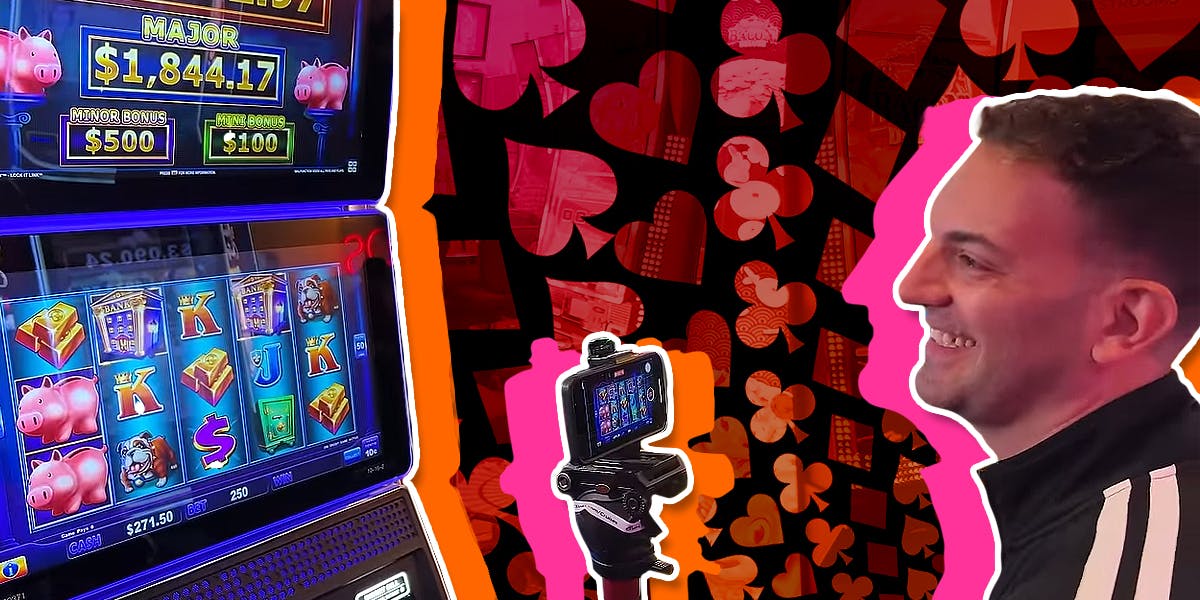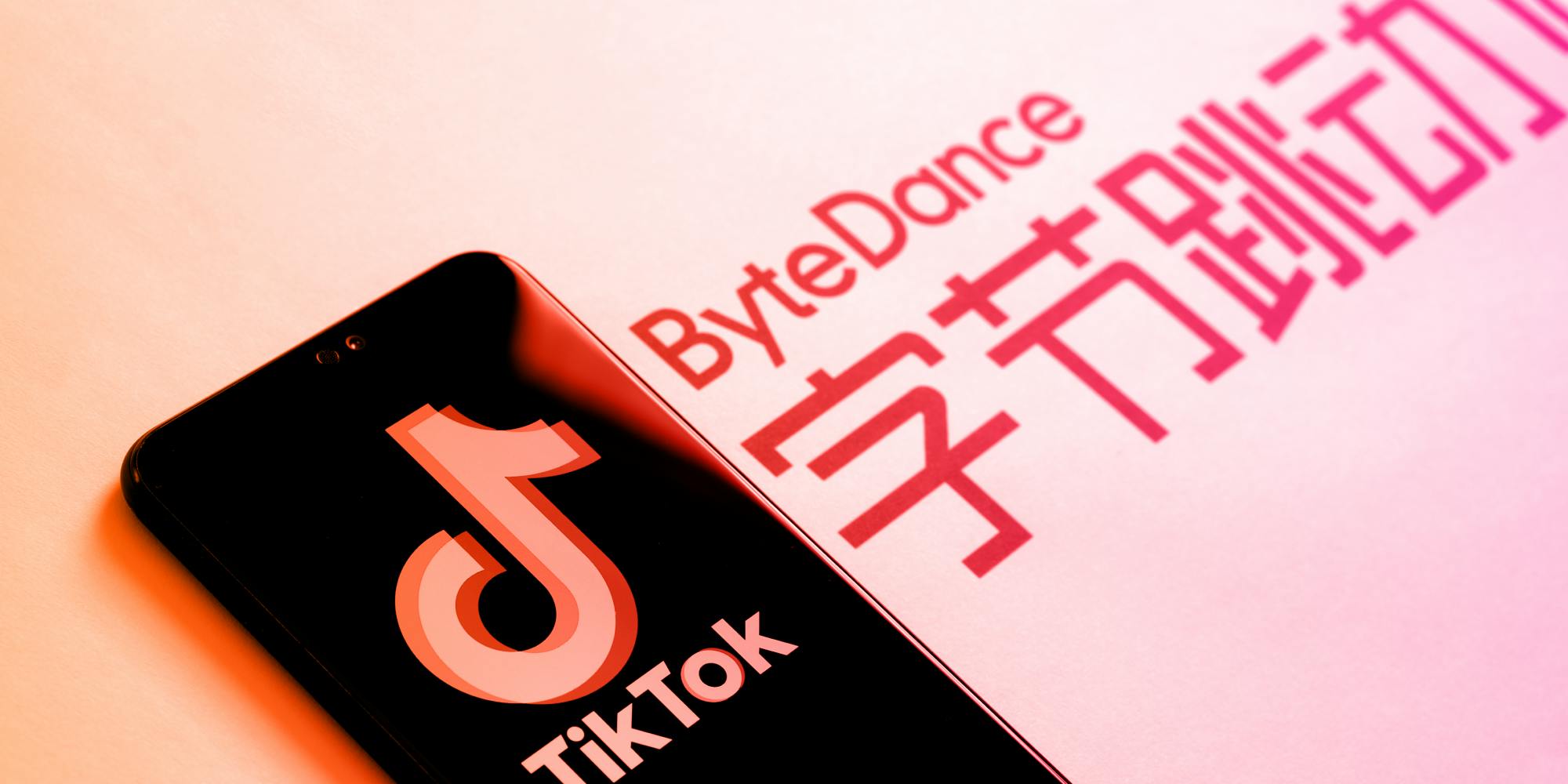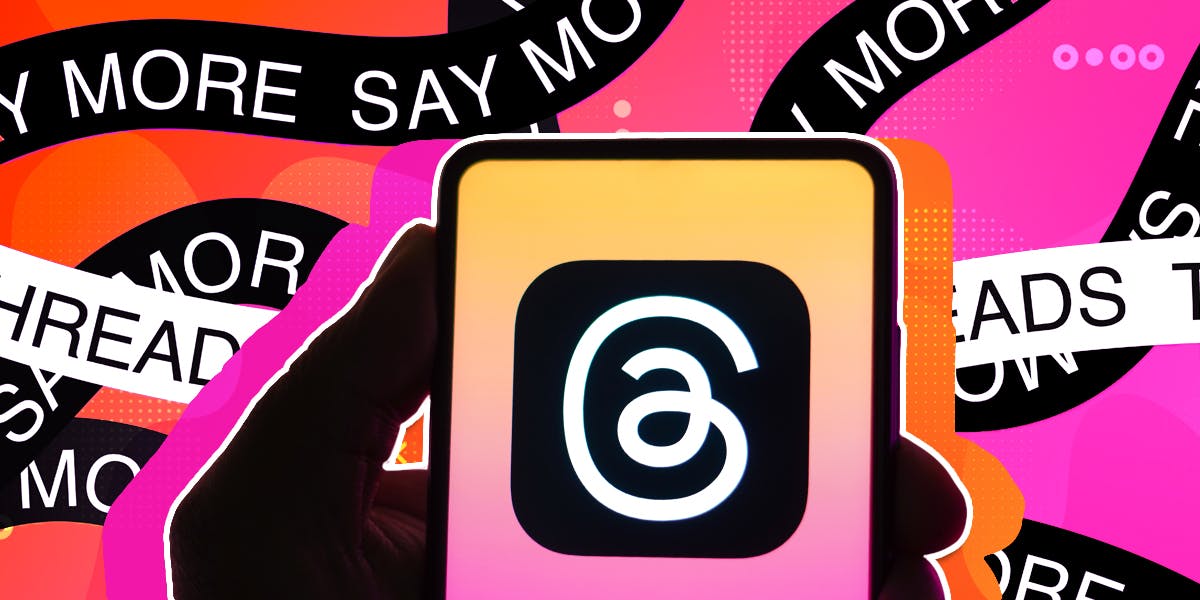
YouTuber Brian Christopher didn’t plan to gamble for a living. Prior to traveling the world to film himself playing at casinos for 1.7 million followers, with his own line of slot machines and cruise routes, Christopher’s main goal was to be a Hollywood actor.
Before 2016, the 43-year-old’s YouTube channel hosted his acting reel. He shared his recent work, like a commercial for the Entourage movie and a bizarre short film about multiracial quintuplets. But on one fateful trip to Vegas, he decided to film and upload a video of him messing around at the slots.
“I never planned to post one again,” Christopher told Passionfruit. “But by the end of the week, I had a ton of subscribers, views, and people asking when the next slot videos are coming out.”
A few weeks later, he went back to film at the casino, putting his acting career on hold as he transitioned to being a full-time YouTuber.
Slot machine content, which seems to be everywhere, was still a fairly new and niche field. That allowed Christopher’s channel to soar. Just a few months after he started, the channel was pulling in 1.5 million views a month, according to Socialblade.
These days, the slot machine guru is winning big with over eight million monthly viewers. He now has a full team of 12, including editors and a videographer backing him up. He’s churning out at least one 30-minute video daily on Facebook and YouTube, as well as a live stream every Wednesday.
In Brian Christopher’s eyes, “each video has to be better than the last” to keep his audience coming back for more. So he has to keep spending big. Bets of $20 to 100 dollars a spin create epic moments for YouTube Shorts.
“When I am gambling, it’s all for them,” Christopher said. “I’m giving them the best angle, the best views. It’s not for me. I want it to look great on camera.”
Gambling content does exceptionally well online. That endorphin rush that comes from pressing a button and having a golden piggy bank scream that you are a winner has long been compared to the symptoms of substance addiction. Gambling with your cash can potentially lead to ruin, so there’s an incentive to watch someone take the risk for you.
“There’s something about getting enjoyment out of someone else’s excitement,” Christopher said. “And for me, there’s no greater excitement than gambling, where you can win a huge jackpot.”
With those huge highs, incredible lows are sure to follow. According to the National Center for Problem Gambling (NCPG), 60 percent of US adults have gambled in the past year. Around 2.5 million adults are considered severe problem gamblers.
According to the Nevada Council on Problem Gambling, of those in treatment for gambling addiction, at least half have suicidal ideation. 17 percent have attempted to take their own lives.
Brian Christopher describes slot machines as a “losing sport” where you’ll inevitably “lose money in the end.” He tells fans they should only gamble with money they can afford to be without.
In 2022, Christopher lost $300,000 gambling, and he hasn’t done the numbers for 2023. But that’s money Christopher can afford to lose to keep his business running, which he said is definitely in the “positive” though he “did not feel comfortable” sharing how much.
To remind his viewers of the problems of gambling, Christopher puts a disclaimer in the bottom right corner of the screen for a few seconds in the first 40 seconds of some of his videos or in video descriptions. It reads, “Please gamble responsibly. For help, visit NCPGambling.org.”
He also only gambles with his own money rather than with sponsors or freebies from the casinos. He says he shows his sessions unedited — losses and all.
“When you are giving someone millions of dollars to gamble with, you’re giving the wrong message,” Christopher said. “I would have hated it if I was ever responsible for encouraging anyone to play beyond their means.”
Alongside traditional casinos, gambling websites that let you use cryptocurrency, like Stake and Roobet, have rapidly grown in popularity. Appealing to influencers and getting them funds to gamble in front of their audiences has proven a lucrative strategy. It’s easy to get fans to use a VPN, even if sites like Roobet aren’t legal in the US.
Popular Twitch streamers like Pokimane and Hasan Piker have spoken up against gambling on the platform, leading to Twitch banning select crypto gambling sites in September 2022. Stake helped fund and launch competitor Kick, which has now become full of unfettered gambling and controversial content.
Brian Christopher says he’s had plenty of crypto casinos offer to sponsor his channel. But he has “refused to even get near cryptocurrency” and has turned down “millions of dollars over the years.” He added that he requires sponsors to be “legal,” and he has to “believe in them.” If not, he says the other companies he works with would drop him.
Chumba Casino, an online gambling platform located in Malta, sponsors Christopher. He has posted videos spending thousands on the platform. According to its website, the company doesn’t use crypto, but rather a “unique sweepstakes model,” a convoluted workaround that allows it to be legal in the United States and Canada.
YouTube and Facebook both allow the promotion of gambling content. According to Google’s ad policy, it supports “responsible gambling advertising.” Meta’s policy says “ads that promote online gambling and gaming are only allowed prior written permission.” Both allow gambling content, as long as the platforms approve the gambling venues.
But while these platforms (and Christopher) think gambling can be advertised in an ethical way, the online gambling ecosystem is currently fraught with troubling stories of addictions.
Studies suggest online gambling has become more pervasive and harmful, particularly for young people. Stories of online betters throwing away tens of thousands of dollars, gambling away their student loan money, or even placing bets while showering are now commonplace.
A 2023 Rutgers report on gambling in New Jersey found a third of gamblers aged 18 to 24 exclusively bet online rather than in casinos. A 2024 Siena College poll reported the majority of online gamblers were young men. Almost half said they “feel they’re betting more than they should.”
It might be too soon to know how gambling content on social media platforms affects digitally native young people. But that is, according to one gambling executive, the goal.
In a 2023 Forbes interview, SoBet CEO Cooper Lycan said his current marketing tactics are “about meeting younger audiences where they are with creator content that is native to Gen Z media habits and delivered by experts they trust and can identify with.”
For his part, Christopher claims his demographic tends to be all ages, with IRL events skewing a bit older. At the Plaza Casino in Las Vegas, Christopher has his own plaza. It’s the only smoke-free place to gamble in the city.
His slot machines, plastered with his face and over 200 voice lines, are in 80 casinos worldwide. Recently, he launched FlipTheSwitch, a website to answer fan’s questions about gambling and about him.
“Ever since I was 19, when I was able to gamble for the first time in Canada, I’ve loved it,” Christopher said. “Gambler is my dream job.”




